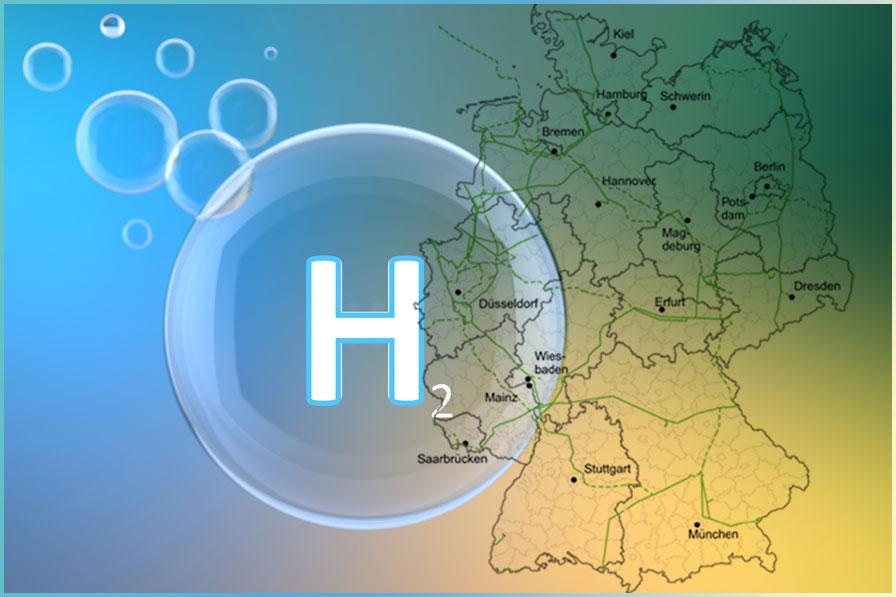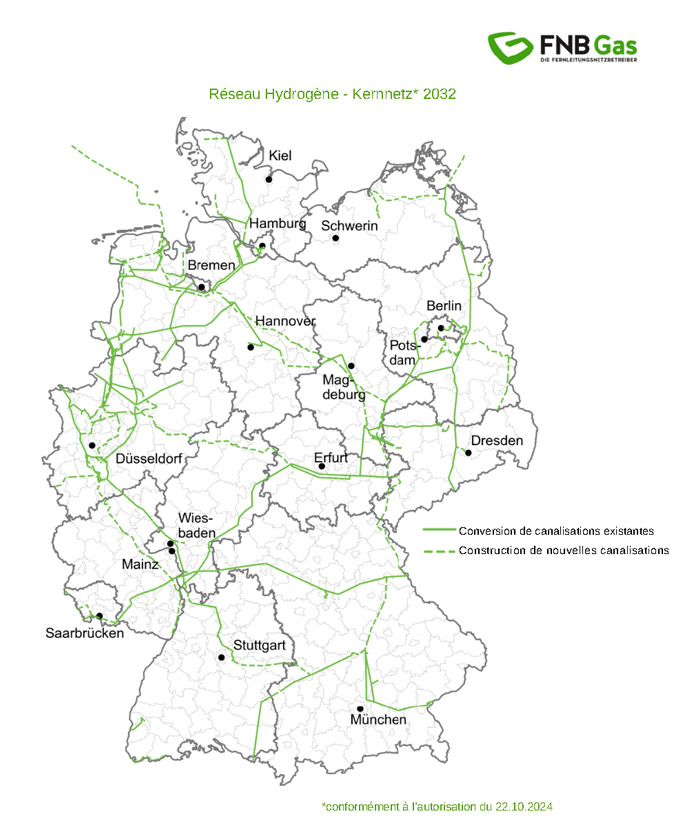Kernnetz project

On 22 October 2024, the German Federal Network Agency (BNetzA) approved Kernnetz, the hydrogen transport project of more than 9,000 km. In this context, GRTgaz Deutschland is involved in 3 key projects.
The future network of hydrogen pipelines

The future network of hydrogen pipelines
The Bundesnetzagentur (BNetzA), the Federal Network Agency, approved the hydrogen backbone network set up by the transportation network operators, which will consist of 9,040 kilometres of pipelines by 2032 to support its energy transition. About 60% of pipelines will be converted from gas to hydrogen; 40% of pipelines will be newly built. The first pipelines will be commissioned next year, with full commissioning planned for 2032.
Investment costs for this network are estimated at €18.9 billion.
The hydrogen backbone network will link regional and local hydrogen clusters across Germany and will take into account connections with neighbouring countries. Germany will need to import between 50% and 70% of its hydrogen requirements.
What are the objectives?
By 2032, the network's power supply is expected to reach 101 gigawatts, making it the largest and most efficient hydrogen infrastructure in the world.
Hydrogen is considered as crucial to the decarbonisation of industry and energy production, particularly following the phasing out of nuclear power in 2023 and the gradual reduction in the use of coal between 2030 and 2038.
Impact for GRTgaz Deutschland
- The conversion of one of the 2 MEGAL pipelines co-financed by GRTgaz Deutschland and OGE
- pipeline between Medelsheim-Gernsheim (135 km)
- pipeline between Waidhaus-Rothenstadt (29 km)
- The construction of a new pipeline between Rothenstadt and Forchheim